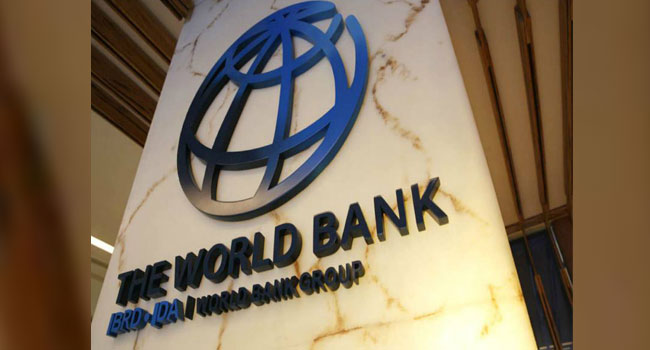[ad_1]

The World Bank is set to approve fresh loans totalling $632m to Nigeria today (Monday) amid mounting concerns over the country’s rising debt profile, The PUNCH reports.
The loans are to support critical areas, including nutrition improvement and quality basic education.
Information obtained from the World Bank’s website on Sunday showed that the two loans expected to be approved today include $80m for the Accelerating Nutrition Results in Nigeria 2.0 project and $552m for the HOPE for Quality Basic Education for All programme.
Both projects are currently in the negotiation stage and are expected to receive final approval later today. These new loans form part of a broader strategy by the World Bank to support Nigeria’s development agenda, focusing on healthcare, education, and community resilience.
The loans are expected to boost the government’s efforts to improve nutrition outcomes and enhance access to quality education for Nigerian children.
Meanwhile, the World Bank had already approved a $500m loan to Nigeria last Friday to support the country’s Community Action for Resilience and Economic Stimulus Programme.
The approval, which took place on March 28, 2025, marked a significant step towards addressing Nigeria’s economic challenges through expanded access to livelihood support, food security services, and grants for poor and vulnerable households and firms.
The programme, officially titled the NIGERIA: Community Action (for) Resilience and Economic Stimulus Programme, is designed to provide essential support to households affected by economic downturns and bolster community resilience.
The initiative targets vulnerable populations by offering grants to households and small businesses to mitigate the economic hardships they face.
The loan approval is expected to significantly enhance Nigeria’s efforts to stimulate the economy through grassroots support, particularly amid ongoing challenges such as inflation and high living costs. The stimulus package will focus on improving food security and creating economic opportunities for communities hardest hit by recent economic fluctuations.
This approval occurred amid a delay in releasing funds for a previous loan targeted at poor and vulnerable Nigerians.
Further checks by The PUNCH showed that the World Bank disbursed to Nigeria about $315m out of the $800m approved for the National Social Safety-Net Program Scale Up.
For over a year, Nigeria has yet to get any further funds from the World Bank on this loan project, which was approved in December 2021. The delay in funds disbursement is likely linked to the issues of fraud detected under the programme.
President Bola Tinubu launched a social safety net programme that will distribute N25,000 to 15 million homes for three months in observance of the 2023 International Day for the Eradication of Poverty. The Federal Ministry of Humanitarian Affairs and Poverty Alleviation was tasked with carrying out the $800m World Bank loan project.
However, the Federal Government had to suspend the cash transfer programme for further investigation and revamping following alleged misappropriations within the programme.
Former humanitarian minister, Betta Edu, was earlier suspended due to the misappropriation of N585m earmarked for palliative distribution.
Also, Edu’s predecessor, Sadiya Umar-Farouq, was being investigated by the EFCC. The ex-minister is being probed over an alleged laundering of N37.1bn during her tenure as a minister.
The World Bank also issued sanctions to individuals and businesses found committing fraud under the programmes.
Earlier, The PUNCH reported that the Federal Government would likely secure six new loans totalling $2.23bn from the World Bank in 2025 as the international financial institution continues to support the country’s economic and structural reforms.
Data from the World Bank’s official website indicates that this will bring Nigeria’s total approved loans to $9.25bn over three years, reflecting a growing reliance on multilateral funding to support critical sectors of the economy, including infrastructure, healthcare, education, and economic resilience.
An analysis of Nigeria’s loan approvals from the World Bank since 2023 under the administration of President Bola Tinubu shows a significant increase in funding commitments.
In 2023, the World Bank approved loans amounting to $2.7bn, which primarily targeted projects in renewable energy, women’s empowerment, education, and the power sector.
The funding approvals recorded in 2024 significantly surpassed those of the previous year, with a total of $4.32bn allocated to various projects. This increase was largely due to Nigeria’s growing need for financial assistance to stabilise the economy amid mounting fiscal pressures and rising public debt.
For 2025, Nigeria is looking to secure six new loans from the World Bank, with a combined value of $2.23bn. The planned loans cover key sectors, such as digital infrastructure, healthcare, education, nutrition, and community resilience.
Under the administration of President Bola Tinubu, the World Bank has approved around 11 different loan projects for Nigeria.
In less than two years, the Federal Government has secured loans worth $7.45bn from the World Bank, raising concerns about the growing debt burden. According to data from the Debt Management Office, the World Bank’s share of Nigeria’s external debt amounts to $17.32bn, as of the third quarter of 2024.
The bulk of this debt is owed to the International Development Association, which accounts for $16.84bn, representing 39.14 per cent of Nigeria’s total external debt. The International Bank for Reconstruction and Development, another arm of the World Bank, is owed $485.08m, or 1.13 per cent.
While the proposed World Bank loans could provide much-needed fiscal relief, concerns remain over the country’s rising debt burden. Recent data from the Central Bank of Nigeria indicate that the country has spent $5.47bn on external debt servicing in the past 14 months, highlighting the strain on its foreign reserves.
The Minister of Finance and Coordinating Minister of the Economy, Wale Edun, earlier said that rather than accumulating more debt, the government is prioritising alternative funding sources such as revenue generation, concessional loans, and strategic investments.
“We are at that optimisation stage, where there is less focus on borrowing, particularly from the commercial markets, which is quite high. We are focusing more on optimising assets and attracting private sector investment, whether domestic or foreign,” Edun said.
However, the consistent growth in the World Bank’s financial commitments to Nigeria, from $2.7bn in 2023 to $4.32bn in 2024, and the anticipated $2.23bn in 2025, highlights the country’s increasing dependence on concessional financing to drive structural reforms and public sector investments.
As Nigeria continues to navigate its debt challenges, experts emphasise the importance of efficient fund utilisation and transparent project execution to ensure that these loans yield meaningful economic and social benefits.
Speaking with PUNCH on Sunday, development economist Dr Aliyu Ilias expressed concerns about Nigeria’s borrowing approach, stating that while borrowing itself is not inherently bad, it has become problematic given the country’s current economic situation.
“I think borrowing itself is not bad, but at the point Nigeria is now, borrowing is becoming a bad thing,” he said.
Ilias noted that during the administration of former President Muhammadu Buhari, borrowing was widely criticised, and many had hoped that the current government would avoid taking on new debt.
He pointed out that the Tinubu administration has generated more revenue compared to previous governments since the Fourth Republic in 1999.
He highlighted various revenue-generating measures undertaken by the current government, such as the removal of fuel subsidies, increased electricity tariffs for Band A, and the proposed tax reforms.
He also recalled that the Federal Government announced a significant increase in revenue for the Federal Inland Revenue Service earlier this year, leading to an upward adjustment of the national budget.
Ilias questioned the rationale behind further borrowing despite these revenue gains, suggesting that the government should focus on managing existing resources more efficiently.
He also criticised the reliance on the debt-to-GDP ratio as a measure of debt sustainability, warning that the proposed rebasing of the GDP could encourage more borrowing.
“I was expecting that in the first four years of President Bola Tinubu’s administration, the government would not embark on borrowing,” he said.
In a related development, during a media interactive session in Abuja over the weekend, the Chief Executive Officer of the Nigerian Economic Summit Group, Dr Tayo Aduloju, called for a more strategic approach to borrowing.
He said, “We need to be creative about the borrowing plan. How much domestic borrowing we need to do. How much external borrowing we need to do, and at what price.”
Aduloju emphasised the importance of balancing domestic and external borrowing while ensuring that critical infrastructure projects are prioritised and tied to disciplined financing.
He noted that a well-planned borrowing strategy could enhance project implementation and public perception.
He also advocated for a shift towards an economy driven by foreign direct investment rather than excessive borrowing as a more sustainable economic model.
[ad_2]
Source link







